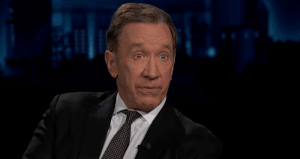Jen Psaki Critiques Democratic Leadership Over Ocasio-Cortez’s Oversight Committee Exclusion
MSNBC host Jen Psaki has criticized Democratic leaders for overlooking Rep. Alexandria Ocasio-Cortez for a key committee leadership position, sparking debate over generational divides within the party.
Psaki expressed disappointment after Democrats chose the older Rep. Gerry Connolly for the House Oversight Committee, a role previously filled by Jamie Raskin, arguing the party missed an opportunity to energize its base with younger, more media-savvy leadership.
Psaki Questions the Decision to Pass Over Ocasio-Cortez
The choice of Connolly, who is 74, over the 35-year-old Ocasio-Cortez for the top spot on the House Oversight Committee has sparked controversy. Psaki, who served as a White House press secretary under President Biden, highlighted the generational divide within the party. Speaking on MSNBC, she expressed concern that by passing over Ocasio-Cortez, the Democratic Party had missed a key opportunity to revitalize its leadership after a challenging election.
Psaki pointed out that the House Oversight Committee is one of the few congressional committees that garner significant national media attention, particularly under the leadership of former chair Rep. Jamie Raskin. The committee became a prominent platform for challenging Republican narratives and misinformation. In this context, Psaki felt Ocasio-Cortez, known for her strong media presence and progressive policies, would have been a more dynamic leader for the role.
The Role of Speaker Emerita Pelosi in the Selection
While Psaki expressed deep respect for Speaker Emerita Nancy Pelosi, she criticized the decision to support Connolly, backed by Pelosi, over Ocasio-Cortez. “This felt like an obvious chance to apply some of the lessons we should've learned from the November election,” Psaki said. She emphasized that Ocasio-Cortez’s younger, more media-savvy image could have invigorated the party's appeal.
Generational Divide Sparks Frustration Among Democrats
The Democrats' vote to select Connolly, which passed 131 to 84, highlighted a deeper divide within the party. Critics argue that the decision signals the party’s preference for established figures in the Democratic establishment over younger, more progressive voices. Ocasio-Cortez, a leader of the party’s progressive wing, was seen as the natural choice for many who wanted to shift the party’s approach following a narrow 2024 loss.
Rep. James Comer, the Republican Chairman of the House Oversight Committee, suggested that Ocasio-Cortez's “socialist” views aligned well with the Democratic Party’s current direction. Comer’s comments further fueled discussions about whether the appointment of an older, more centrist figure like Connolly would help or hinder the party’s future prospects.
“A Blow to the Youth Movement Within the Party”
Fox News senior congressional correspondent Chad Pergram referred to the selection of Connolly as a “blow to the youth movement within the Democratic Party,” suggesting that the divide between young and old could deepen tensions within the party. Pergram argued that this generational divide could ultimately drive a wedge through the Democratic coalition, weakening the party's ability to unite across different factions.
Rep. Dean Phillips of Minnesota, another Democratic voice critical of the decision, warned that the failure to elevate young leaders like Ocasio-Cortez would have long-term consequences for the party. “We have literally kept them from ascending to leadership positions, which means they go elsewhere,” Phillips said, emphasizing that the Democratic Party must prioritize young, talented leaders to ensure its future success.
Critics Accuse Pelosi of Influence in Connolly’s Appointment
The influence of Speaker Emerita Pelosi in the committee decision has also been a point of contention. MSNBC's Chris Hayes accused Pelosi of “whipping votes” to ensure Connolly’s victory, even as she recovered from hip surgery. Hayes noted that Pelosi, despite being 84 years old and in recovery, played a significant role in securing Connolly’s position over the party's younger, more progressive candidates.
Joy Reid, also from MSNBC, joined in the criticism, calling out what she described as the Democratic Party's "gerontocracy." She pointed to former President Barack Obama’s decision to distance himself from the Democratic National Committee (DNC) during his rise, suggesting that younger leaders have long been frustrated by the party’s old guard.
Connolly Responds to Generational Debate
Connolly himself has downplayed the debate over age and generational differences, calling it a “false narrative.” He dismissed the suggestion that his appointment represented a missed opportunity for younger leadership, stating that such discussions were largely driven by the media and not by the actual needs of the party.
His comments, however, did little to quell the frustration among younger Democrats who feel sidelined in favor of more traditional party figures. The debate over the selection of committee leadership has intensified calls for the Democratic Party to reevaluate its approach to leadership transitions, particularly in the wake of a tough election cycle.
The Future of Democratic Leadership: Generational Tensions Persist
As the Democratic Party continues to grapple with its identity and future direction, the decision to bypass Ocasio-Cortez for the House Oversight Committee has underscored the ongoing tensions between the party’s younger and older factions. With key leadership roles on the line, many are questioning whether the Democratic Party can continue to rely on its established figures or whether it must begin to embrace younger, more media-savvy leaders like Ocasio-Cortez.
As the party faces a critical juncture, the generational divide may prove to be a defining issue in the years ahead. How Democrats respond to these tensions could shape their future successes or failures in upcoming elections.




